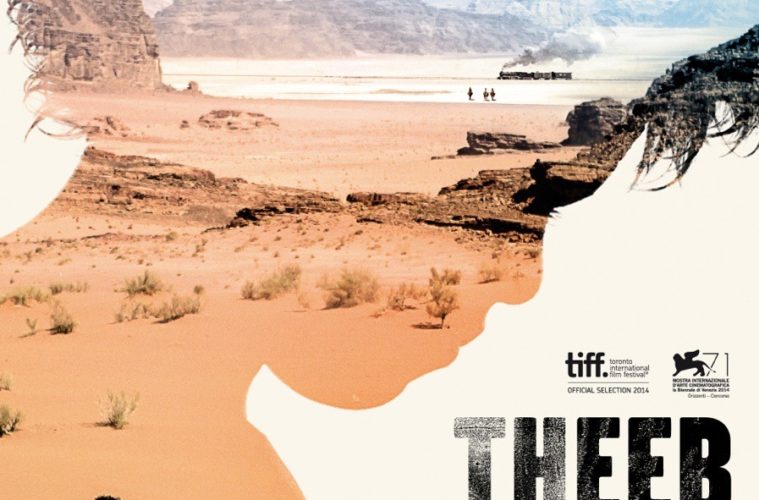If the impetus behind many feature debuts — great and terrible alike — is to proclaim a helmer’s talents for all who might bother listening, Theeb‘s greatest distinction lies in its reliance on the misunderstood. The impression left by Naji Abu Nowar, credited as a co-writer alongside Bassel Ghandour, is a greater interest in what we must presume and concede than what we can understand and apply, instead trusting that his collaborators will utilize their own strengths — strengths often secondary to the logic or understanding that might go into a single moment — for harmonizing a vision of dangerous lands.
With tonal and pacing sensibilities that are nestled somewhere between Jauja and Timbuktu on my personal “languid, vista-dominated films of 2015” chart, it’s mostly built on intrigue — the “who” and “what” of its events coinciding with the “how” of a scenario’s possible outcomes. Its action is set circa 1916 in the Ottoman Empire’s Hijaz Province and commences when a young man, Hussein (Hussein Salameh Al-Sweilhiyeen), agrees to guide a British Army officer (Jack Fox) through the desert toward some vague-but-critical destination. All is seen exclusively through the eyes of Hussein’s younger brother, Theeb (Jacir Eid Al-Hwietat), whose feebleness can be determined rather easily; this is not a verbose film, ensuring that initial flashes of dialogue will communicate quickly. Just as there’s no indication that he’s prepared for the journey — one cut lifts him out of this existence and through winding canyons — it almost immediately goes wrong: Theeb and his fellow travelers discover (and in a rather gruesome manner) a water well with dead bodies, and it’s just as soon that shots are fired and bodies hit the ground.
It never offers much of any opportunity for him to turn heroic, which is only right when the movie hardly seems interested in conjuring such a scenario. Short of saying much in relation to specific actions, the events that immediately ensue are pared down to their most basic shape: the back-and-forth of images displaying a gun fight’s opponents will show and cut at the most precise moments of decision-making, and verbal threats — no doubt a brutish sort speaking down to the easily impressionable child — are only meant to strike the most immediate chord. “I swear I’ll find you! I swear I’ll kill you!” are hardly evocative, but they’re lent an additional power when you realize they’re more or less the only human-made sound in this landscape.
Theeb begins a reluctant survival pact with a wounded combatant (though not necessarily his combatant), and thus begins to completely “take over” the film – or so it seems. What was almost entirely dependent on a child’s point-of-view now becomes unequivocally dominated by that special brand of naïveté, and the sense of loneliness that Nowar and Ghandour conjure here recalls Rossellini’s Germany Year Zero. This is restyling from one circumstance following the other, of course, which ensures that the eponymous character is never exactly much of an agent in his own story.
An appreciation for these months thus leaves me a bit ambivalent about the climactic moments, which shift the visual focus from slack POV shots — “slack” in the sense that he and, by extension, we are observing an endpoint that mostly involves the movement of hands and exchange of items, a process that primarily affects him insofar as he’s present to see it, whatever it may be, take place — to a showdown that would feel more at home in the American west than lands surrounding the Ottoman Empire. Violence and tension aside, there was a sanguine quality to Theeb’s journey that’s here traded for something quicker, in-the-moment, and ephemeral — perhaps thought-provoking as far as the character’s development goes, but not wholly of a piece with the portrait (or deliberate lack thereof) previously assembled.
It’s no less to the picture’s fortune than credit that this is a blemish, not a symbol of failed intent. Theeb’s final moments return the sanguine mood, and its very last images expand the vision of historical setting — something that’s been an undercurrent, given this film’s initial set-up, albeit little else — to put both the events and Nowar’s spare approach into a new light. All’s well that ends well, yes; the question is how much longer anything herein can sustain itself before being taken over by a larger force.
Theeb will enter a limited theatrical release on Friday, November 6.



